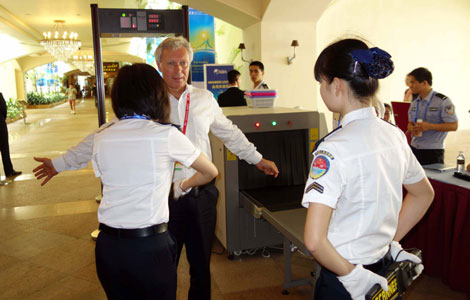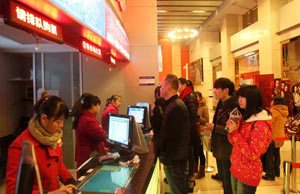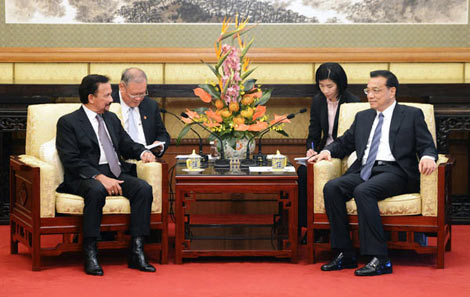
The Chinese government has proposed a series of fiscal and financial measures to ensure the country's circular economy targets are achieved during the 12th Five-Year Plan period (2011-15), in a bid to build a recycling society and promote "green" consumption.
The government set a target to raise the country's resource-utilization efficiency by 15 percent by the end of 2015, compared with 2010, and for the circular economy industry to achieve a total output value of 1.8 trillion yuan ($286.05 million) in the same period, the State Council said earlier this month.
The National Development and Reform Commission, the country's top economic planning agency, issued the development plan on Sunday, saying the government put forward 80 specific standards for the circular economy industry on areas such as recycling, energy efficiency, as well as the use of water, land and raw materials.
The commission said that related policies on investment, taxes and the financial sector, among other areas, will also be launched, and that the government will finalize laws to develop the country's circular economy industry.
Those laws will include restricting excessive packaging of products, establishing standards and testing systems for the healthy development of the circular economy and setting up a fund for the industry.
The government will also boost supervision of the industry and explore market-oriented management methods. Meanwhile, it will accelerate the adoption of advanced technologies and carry out evaluation systems to boost resource efficiency.
According to the plan, China will establish 100 experimental circular economy projects in cities and 1,000 industrial parks. The government encourages banks and investment institutions to invest in such projects.
Companies are also being urged to invest in the projects and to get financing through loans, public listings and by issuing of bonds.
Among the measures, China will raise the entrance requirements for industries with high energy and water consumption, as well as industries with high carbon-emission levels.
The steel industry - which uses coking coal and iron ore as raw materials and consumes massive amounts of electricity during its production process - is one of the key sectors targeted.
"At present, requirements for the upstream and downstream industrial chain of the steel industry, from raw material supply to production, have not been fully established," said Li Xinchuang, deputy secretary of the China Iron and Steel Association. "The circular economy industrial chain across the steel, construction, petrochemical and power industries is in its infancy."
Amid this background, the steel industry should enhance the development of the circular economy from within, which would help save energy and recycle waste products, Li said.
Many Chinese steel companies have been making efforts to recycle for years.
For instance, Shougang United Iron and Steel Co, a company with an annual crude steel production capacity of 9.7 million tons, uses coal gas - which is waste from the steel-making process - for its power plants during electricity generation, according to Yang Chunzheng, deputy general manager of the company. The electricity is then used in its steel mills.
And despite its huge appetite for electricity, the company not only generates 98 percent of its own power, but can even provide some to the national grid, he said.
Also, since the steel mills are located near the coast, seawater is used to cool power plants and is then reused in the steel-making process after being desalinated.
Steel slag - a byproduct of the process of smelting ore - is also delivered to other factories, such as cement plants or construction sites, to be used as a raw material.
dujuan@chinadaily.com.cn
 'Cat model' to dazzle Shanghai auto show 2013
'Cat model' to dazzle Shanghai auto show 2013
 Models at Tokyo modified car show
Models at Tokyo modified car show
 Shanghai Fashion Week focuses on domestic brands
Shanghai Fashion Week focuses on domestic brands
 Angel-dress models at Shandong auto show
Angel-dress models at Shandong auto show
 Safe and Sound
Safe and Sound
 Theater firms scramble for managers
Theater firms scramble for managers
 Premier pledges closer ties with Brunei
Premier pledges closer ties with Brunei
 Volkswagen's all-new GTI at New York auto show
Volkswagen's all-new GTI at New York auto show